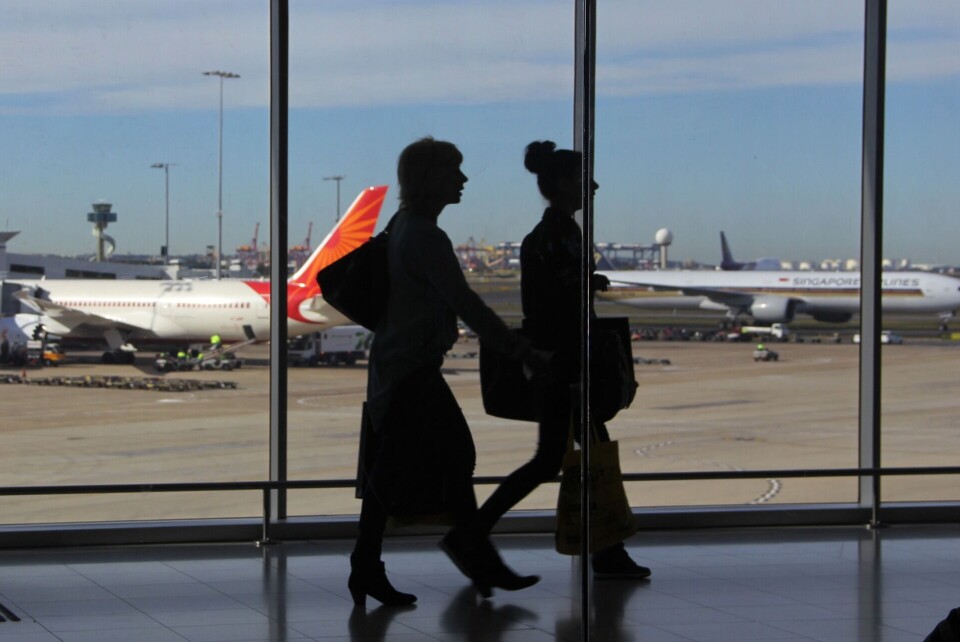-
New rules aim to stop ‘spoofing’ calls in France: what are these?
Calls from French numbers abroad will need to be verified or show as ‘hidden number’, with residents urged to be vigilant about answering
-
Ryanair confirms routes to Dole-Jura airport maintained in summer 2026
Airline previously said that more routes to France will be axed next year
-
Explosion at chemical plant near Lyon: where are other ‘at risk’ sites in France?
An estimated 2.5 million people live within a kilometre of a French Seveso site
EU Covid-19 Travel Certificates: 9 key points to know
The European Parliament has agreed on a legal framework for the travel document which will be named 'EU COVID-19 Certificate'

The European Parliament agreed today (April 29) its negotiating position for a pan-Europe travel certificate that will facilitate movement within the bloc during the Covid-19 pandemic.
It comes after a discussion in the EU Parliament yesterday.
The certificates, which will be available digitally or in paper format, will serve as proof that a person has been vaccinated against Covid-19, has had a recent negative test or recovered recently from Covid-19.
The certificates will “neither serve as a travel document nor become a precondition to exercise the right to free movement”, the European Parliament wrote in a press release.
The certificates will be called EU COVID-19 certificates and not, as previously planned and reported by The Connexion, Digital Green Certificates.
EP adopts clear COVID-19 Certificate negotiating position:
— Jaume Duch (@jduch) April 29, 2021
📌Testing must be universal, accessible, timely and free
📌Certificate cannot be travel requirement nor precondition to right to free movement
📌MS shouldn't impose quarantines/tests on holdershttps://t.co/sFuROlEwo9
Following this agreement, the European Parliament and the European Council will now begin negotiations on the creation of these certificates. The aim is to have them in place before the summer tourist season.
The Parliament voted on two different legislative proposals that will form the legal framework for the certificates.
The first concerned EU citizens and members of their families and the second covered third-country nationals legally staying or residing in the EU.
Both proposals were supported by a large majority in the Parliament.
The certificates will facilitate travel across all EU member states and Iceland, Liechtenstein, Norway and Switzerland.
The EU has stated previously that it is open to expanding the initiative globally or to non-EU countries.
Key points of the EU COVID-19 certificates
- The certificates should remain in place for 12 months and no longer
- They will be free
- They will be eligible for all EU citizens and family members, as well as non-EU nationals staying or living in member states and who have the right to travel to other member states
- Holders of an EU COVID-19 certificate should not be subject to additional travel restrictions, such as quarantine, self-isolation or testing
- EU countries should “ensure universal, accessible, timely and free of charge testing” for Covid-19. Tests are free in France but not all EU countries
- The EU certificate should work alongside any initiative set up by the member states, which should also respect the same common legal framework. France is developing its own travel passes, which you can read about here.
- Member states must accept vaccination certificates issued in other member states for persons inoculated with a vaccine authorised for use in the EU by the European Medicines Agency (EMA) (currently Pfizer-BioNTech, Moderna, AstraZeneca and Janssen
- It will be up to the member states to decide whether they also accept vaccination certificates issued in other member states for vaccines not yet approved by the EMA
- Personal data obtained from the certificates cannot be stored in destination member states and there will be no central database established at EU level.
MEP Juan Fernando López Aguilar, who is chair of the EU’s Committee on Civil Liberties, Justice and Home Affairs, said yesterday:
“We need to put in place the EU COVID-19 Certificate to re-establish people’s confidence in Schengen while we continue to fight against the pandemic.
“Member states must coordinate their response in a safe manner and ensure the free movement of citizens within the EU.
“Vaccines and tests must be accessible and free for all citizens. Member states should not introduce further restrictions once the certificate is in force.”
























